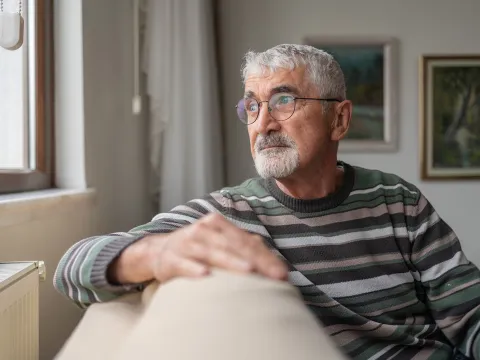- AdventHealth

Choose the health content that’s right for you, and get it delivered right in your inbox.
Have you experienced the feeling of comfort from the cooling yet warm sensation of vapor rub on your chest, or the medicinally sweet taste of a cherry cough drop during an illness? How about the soothing steam from a cup of hot tea with honey? Did you feel a sense of relief?
If you answered yes, you’re in good company; countless people spanning every culture and generation can attest that they’re comforted as adults by remedies used by their parents and grandparents when they were children. But the comfort experienced isn’t just physical. There’s something more profound at play.
While vapor rubs, cough drops and tea do have medicinal benefits that can ease physical symptoms, they touch the mind and spirit on a deeper level that can support whole-person healing. How? Our senses are tied to memories that hold meaning. And when we associate images, sounds, feelings, tastes and smells with the memory of being comforted and cared for, we experience nostalgia.
Keep reading to learn how nostalgia, especially when accessed and used intentionally, can bolster your neurological health, provide comfort and promote healing in body, mind and spirit.
How Does Nostalgia Work?
When you experience nostalgia, a lot is going on in your brain's memory and reward systems. Nostalgia-related activity happens primarily in the hippocampus, ventral striatum and substantia nigra/ventral tegmental area. Scientists believe these systems work together to generate nostalgia.
Music, Memory and Meaning
Most of us recognize the feeling of mentally transporting to previous times and places in our lives when we hear specific music. It could be your high school dance or your childhood living room. Many people report remembering exact moments in history or pivotal events in their personal lives just by hearing a song from that era, suggesting that nostalgia goes beyond mere familiarity. For something to be considered nostalgic, it must hold meaning to the person experiencing it.
Nostalgia as Therapy
Research shows that this musical memory phenomenon can help people with memory loss, especially those with dementia, like Alzheimer’s disease and other related neurological conditions. A new Human Brain Mapping study found that nostalgic music activates a network of brain regions connected to memory, emotion and self-reflection.
In the study, nostalgic songs selected by participants generated more brain activity than non-nostalgic music in younger and older adults. However, older adults showed even stronger activation in key nostalgia-related areas, suggesting nostalgic music may play a special role in memory and emotional processing later in life.
Research like this shines a light on the neuroscience behind music and memory and can help inform how music therapy and other sensory therapies that evoke nostalgia are used to support memory preservation and emotional well-being in aging populations. It also affirms a notion — first developed by neurologist, psychiatrist and Holocaust survivor Viktor Frankl, still widely utilized by psychologists and psychiatrists to help their patients — that finding meaning in one’s life, even while suffering, is connected to hope and healing. In essence, making meaning in any circumstance is an important element of what it means to feel whole.
Whole-Person Care That Comforts Your Soul
At AdventHealth, our care philosophy is built on our legacy of whole-person care and delivered through our mission of Extending the Healing Ministry of Christ. That means we attend to each patient’s body, mind and spirit for their treatment and every interaction.
We deeply understand that the best medicine is developed through modern scientific advances and delivered with the kindness and compassion that only the human spirit can provide through love. That love shows up in the nurse who gives you your medication along with a warm cup of tea; the tech who brings a cool compress for your aching head; the nutritional service team member who remembers your favorite dessert; the music therapist who sings and plays your favorite songs; and the physician who offers to pray with you.
While our goal is to help our patients recover completely, we also understand that physical healing is not always possible in every case. However, each act of care can activate nostalgic memories of past times that can lead patients to find meaning on an emotional and spiritual level in the present and provide human comfort, whatever the future may hold.
Neurological Care That Provides Peace of Mind
If you need help with a neurological condition affecting you or a loved one, the AdventHealth Neuroscience Institute offers leading-edge treatments, innovative therapies and world-class expertise delivered with compassionate care to comfort the whole you.
Visit us here to connect with our team.
Keep Reaching for What Makes You Feel Whole
You deserve to feel whole in every circumstance, and we want you to experience many comforting, meaningful moments of care, warmth and love all your life. May you carry those memories with you as candles of hope to light your way to wholeness.
Learn more about our whole-person care philosophy and how we can support your healing.


